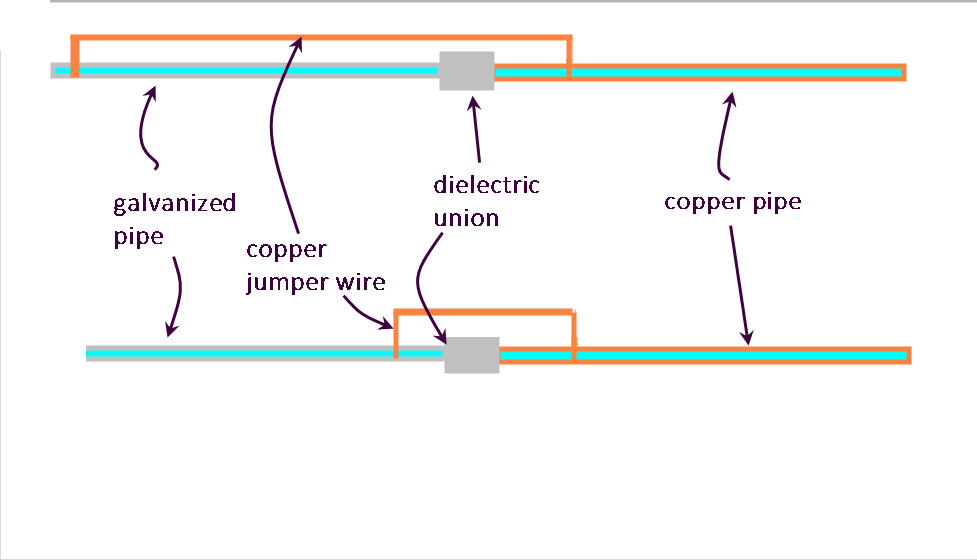I am a layperson not an engineer. In the diagram below showing an old house with a mix of copper and galvanized steel water pipes connected by a dielectric union, with the two dissimilar sections of pipe jumpered to preserve bonding continuity, does the jumpering defeat the effects of the insulation-against-contact provided by the dielectric union equally in both scenarios, assuming a finite service lifetime? Does the scenario with the longer copper jumper wire offer the galvanized pipe any less risk of leak-producing electrolytic corrosion than does the scenario with the much shorter copper jumper wire? Does placing the jumper on the galvanic pipe farther away from its threads help to preserve those threads?
